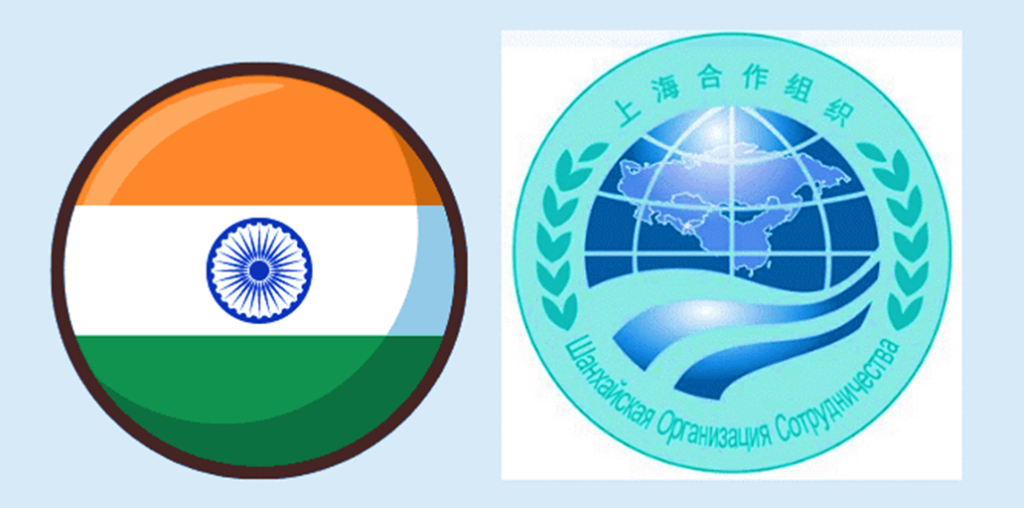24th Meeting of the SCO Council of Heads of State (SCO Summit) will be held on July 4, 2024, in Astana, Kazakhstan, under Kazakhstan’s presidency. Dr S. Jaishankar, External Affairs Minister, will lead the Indian delegation, MEA officials said. During the Summit, leaders will review the organisation’s activities over the past twenty years and discuss future multilateral cooperation. Key regional and international issues are also on the agenda.
24th SCO Summit in Astana
Why In News
- 24th Meeting of the SCO Council of Heads of State (SCO Summit) will be held on July 4, 2024, in Astana, Kazakhstan, under Kazakhstan’s presidency. Dr S. Jaishankar, External Affairs Minister, will lead the Indian delegation, MEA officials said.
- During the Summit, leaders will review the organisation’s activities over the past twenty years and discuss future multilateral cooperation. Key regional and international issues are also on the agenda. Last year, India hosted the SCO Summit virtually, where PM Modi expressed full support for the event’s success in a recent call with Kazakhstan President Kassym-Jomart Tokayev.
Why Isn’t PM Modi Attending
- Indian prime minister usually attends the SCO – which provides an opportunity for heads of the state of the eight-member bloc to meet on the sidelines of the summit.
- Indeed, India had earlier said Modi would attend the SCO meet. the official reason India has given for Modi dropping out is that the dates of the SCO conflicted with that of the first session of India’s Parliament. “Participation in SCO summits has also helped India maintain the facade of multi-alignment, amid the rapidly growing ties with the US,” the piece noted.
- But a look at recent history shows that Modi and Xi haven’t had much interaction at summits.
Shanghai Cooperation Organization
- Shanghai Cooperation Organization (SCO) is a Eurasian political, economic, and security alliance that was founded in 2001. It began as the Shanghai Five in 1996, consisting of China, Russia, Kazakhstan, Kyrgyzstan, and Tajikistan, focusing on border demarcation and building mutual trust.
- The group expanded and evolved into the SCO with the inclusion of Uzbekistan in 2001. Founded by China and Russia in 2001, the SCO is the world’s largest regional organisation in geographic scope and population, covering 80% of Eurasia and 40% of the global population.
- The organization has two main permanent bodies:
- The SCO Secretariat in Beijing, which handles administrative functions.
- The Regional Anti-Terrorist Structure (RATS) in Tashkent, Uzbekistan, focusing on security cooperation and counter-terrorism.
- The decision-making process within the SCO is consensus-based, reflecting the principle of equal partnership among member states.
Membership and Observers
- The SCO’s membership has grown over time. Initially comprising six countries, it expanded to include India and Pakistan as full members in 2017. The current full members are: China; Russia; Kazakhstan; Kyrgyzstan; Tajikistan; Uzbekistan; India, Iran and Pakistan.
- Additionally, the SCO has several observer states and dialogue partners, including countries like Afghanistan, Belarus, Mongolia, and others, which participate in various capacities in the organization’s activities.
Key Areas of Cooperation
- Security Cooperation: The SCO places significant emphasis on combating the “three evils” of terrorism, separatism, and extremism. Joint military exercises, intelligence sharing, and coordinated actions against threats are central to this effort.
- Economic Collaboration: The organization promotes trade and economic cooperation among member states. Initiatives such as the SCO Development Bank and the SCO Free Trade Area have been proposed to enhance economic integration.
- Cultural Exchange: The SCO fosters cultural ties through events, educational exchanges, and joint cultural projects, aiming to strengthen people-to-people connections among member countries.
India’s Entry and Strategic Interests
- India’s accession to the SCO in 2017 marked a significant step in its foreign policy, reflecting its interest in engaging with Eurasia. India’s involvement in the SCO is driven by several strategic objectives:
- India’s priorities in SCO are shaped by Prime Minister Narendra Modi’s vision of a ‘SECURE’ SCO. SECURE stands for Security, Economic cooperation, Connectivity, Unity, Respect for sovereignty and territorial integrity, and Environmental protection, the Ministry of External Affairs (MEA) said in a statement.
- Regional Security: Participation in the SCO enhances India’s ability to collaborate on security issues, particularly in combating terrorism and extremism. The SCO provides a platform for intelligence sharing and joint counter-terrorism efforts.
- Economic Opportunities: The SCO offers India access to the resource-rich Central Asian region, which is crucial for energy security and trade. India’s engagement aims to boost connectivity and trade routes, such as the International North-South Transport Corridor (INSTC).
- Geopolitical Influence: Membership in the SCO allows India to play a more prominent role in regional geopolitics. It provides a counterbalance to China’s influence in the region and strengthens India’s ties with Russia and Central Asian countries.
- Cultural and People-to-People Ties: India leverages the SCO to promote cultural exchanges and enhance its soft power in the region. Initiatives such as the SCO Film Festival and academic scholarships help build cultural bridges.

















